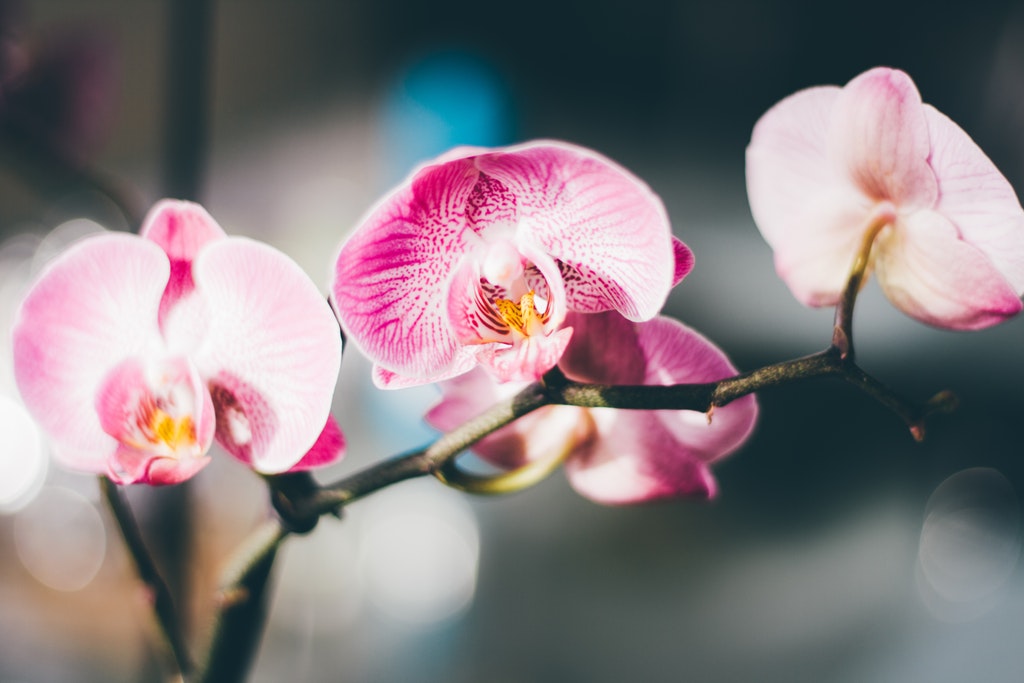
You never quite get over the exquisite beauty of an orchid. Maybe you have just brought one home, and you want it to last and last and produce even more of its magnificent flowers. You may be a bit anxious because you’ve heard that orchids are fussy. The truth is, they’re not that fussy. Orchid care is a bit different depending on the species of orchid, for some originate in cool climates, others in warmer climates and still others in the tropics. But there are some things they have in common. Here are five tips for taking care of them:
1. Lots of Humidity
No matter where the orchids are from, they all thrive on humidity. If they are in a greenhouse, that may mean soaking the entire area around them, including the floor, at least once a day. If they’re the house, they should be misted at least once and day and maybe more during the hot weather. Placing the pot on a tray of wet gravel also guarantees a good level of humidity.
2. Fresh Air
Orchids need fresh air to stay healthy, so they should be placed in an area which is well-ventilated. However, they should be protected from drafts. In the winter, they should be kept away from furnaces, registers and anything that blows heat and fumes into the room. An open window with a screen is acceptable during cooler summer nights as long as the plant isn’t directly in front of it.
3. Not Too Much Light
Orchids need lots of bright light but need to be protected from direct sunlight during the hot summer months. In the home, the orchid shouldn’t be placed in a window that gets southern light unless the window is covered with a sheer curtain during the hottest part of the day. A sheer curtain lets in a lot of light but keeps the leaves of the orchid from getting burned.
4. Water Regularly During the Growing Season
While the orchid is growing and producing flowers, it should regularly be watered so that the soil stays moist but not soggy. Sodden growing medium will cause the roots of the orchid to rot, but the thoroughly dry medium will stunt the plant’s growth. The pot the orchid is in also needs to have good drainage.
During the winter, many orchids go dormant, and some of them will even drop their leaves. This does not mean that they are sick, but that they’re resting. They won’t start to grow again until spring comes around, and during their dormancy orchids need little or no water.
5. Plant Orchids in Soil-Free Medium
Orchids need to be planted in well-drained compost derived from bark or orchid potting mix. Some gardeners add sphagnum moss to the mix help it hold on to water or charcoal to make the compost less acidic. If the orchid needs repotting, it is best done in the spring.

